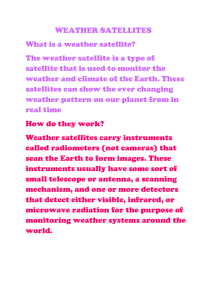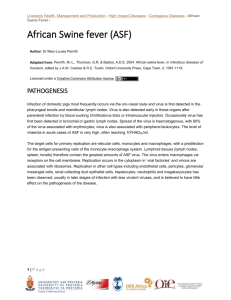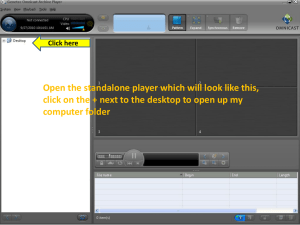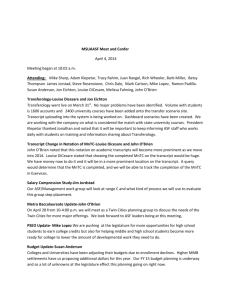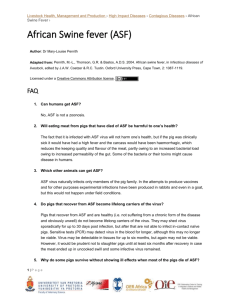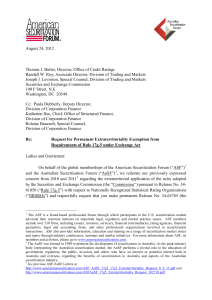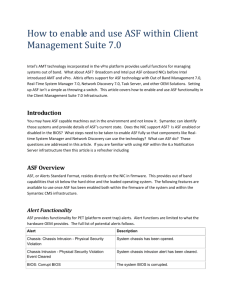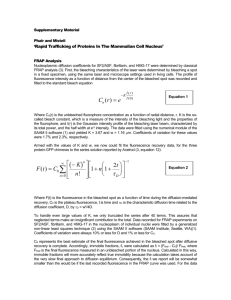Alaska Satelite Facility CS Student software pr..
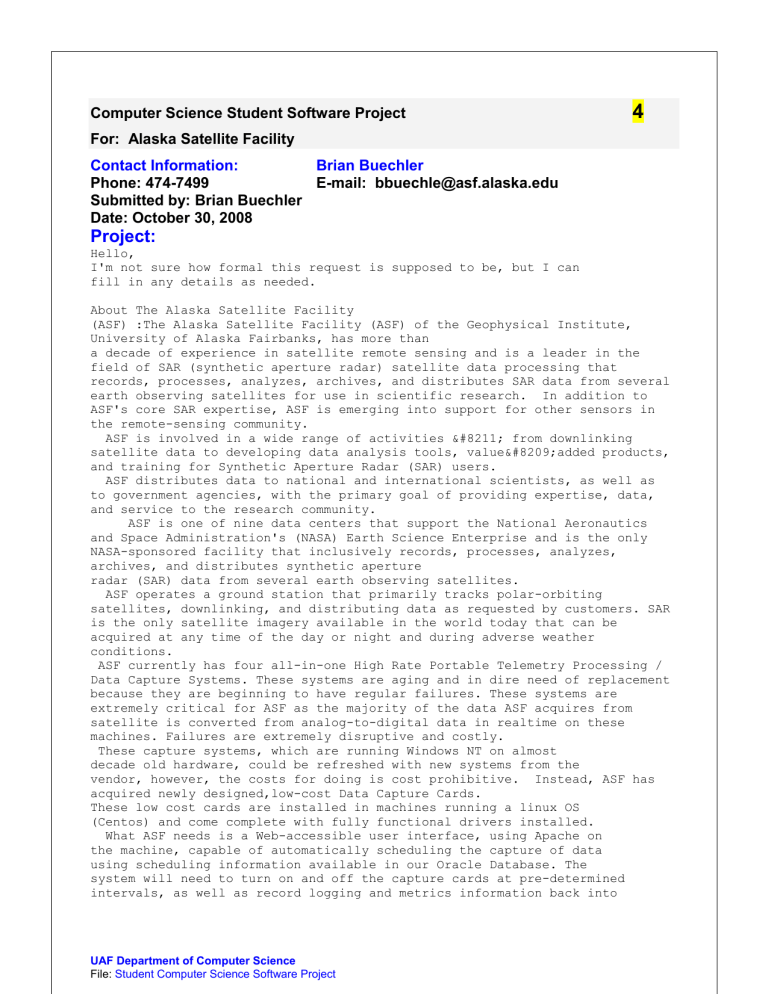
Computer Science Student Software Project
4
For: Alaska Satellite Facility
Contact Information:
Phone: 474-7499
Submitted by: Brian Buechler
Date: October 30, 2008
Brian Buechler
E-mail: bbuechle@asf.alaska.edu
Project:
Hello,
I'm not sure how formal this request is supposed to be, but I can fill in any details as needed.
About The Alaska Satellite Facility
(ASF) :The Alaska Satellite Facility (ASF) of the Geophysical Institute,
University of Alaska Fairbanks, has more than a decade of experience in satellite remote sensing and is a leader in the field of SAR (synthetic aperture radar) satellite data processing that records, processes, analyzes, archives, and distributes SAR data from several earth observing satellites for use in scientific research. In addition to
ASF's core SAR expertise, ASF is emerging into support for other sensors in the remote-sensing community.
ASF is involved in a wide range of activities – from downlinking satellite data to developing data analysis tools, value‑added products, and training for Synthetic Aperture Radar (SAR) users.
ASF distributes data to national and international scientists, as well as to government agencies, with the primary goal of providing expertise, data, and service to the research community.
ASF is one of nine data centers that support the National Aeronautics and Space Administration's (NASA) Earth Science Enterprise and is the only
NASA-sponsored facility that inclusively records, processes, analyzes, archives, and distributes synthetic aperture radar (SAR) data from several earth observing satellites.
ASF operates a ground station that primarily tracks polar-orbiting satellites, downlinking, and distributing data as requested by customers. SAR is the only satellite imagery available in the world today that can be acquired at any time of the day or night and during adverse weather conditions.
ASF currently has four all-in-one High Rate Portable Telemetry Processing /
Data Capture Systems. These systems are aging and in dire need of replacement because they are beginning to have regular failures. These systems are extremely critical for ASF as the majority of the data ASF acquires from satellite is converted from analog-to-digital data in realtime on these machines. Failures are extremely disruptive and costly.
These capture systems, which are running Windows NT on almost decade old hardware, could be refreshed with new systems from the vendor, however, the costs for doing is cost prohibitive. Instead, ASF has acquired newly designed,low-cost Data Capture Cards.
These low cost cards are installed in machines running a linux OS
(Centos) and come complete with fully functional drivers installed.
What ASF needs is a Web-accessible user interface, using Apache on the machine, capable of automatically scheduling the capture of data using scheduling information available in our Oracle Database. The system will need to turn on and off the capture cards at pre-determined intervals, as well as record logging and metrics information back into
UAF Department of Computer Science
File: Student Computer Science Software Project
the database. The user interface portion will need to provide real-time diagnostics and status information, as well as provide the ability to manually control the capture cards. Furthermore, as each satellite is slightly different, the system should be modular enough to handle many unique data sources, as well as the particular procedures that go with each. Each module should be a user-defined combination of a number of interchangeable, predefined,sub-modules such as:
Invoke External Data Switching Control Unit
Turn On Capture Card
Record metrics from Capture Card, Insert into Database
Turn Off Capture Card
Rename data file to specified Format
Copy / Transfer Data to specific Location
Record Success / Failure in Database.
Send Notification Email
The systems should be fairly robust and as fault tolerant as possible.
The system will need to keep and maintain a local copy of schedule from the database so that a loss of database access does not halt operation.
Similarly, If any sub-module does not execute as expected, the problem should be logged and to the extent it can, the process should continue.
The necessary hardware and support software have been assembled and are ready to go. I can provide any and all hardware, software, and interface documentation as needed.
I will be the main point of contact for this project, and I am available on campus 8am-5pm daily, and can be reached by both email
( bbuechle@asf.alaska.edu
) and phone (x7499).
Thank you for your consideration,
Brian Buechler
Senior Engineer
Alaska Satellite Facility
Approved:
Date:
Yes No
Committee Members & Students
[ Company Name ] Confidential Page 2 4/16/2020

